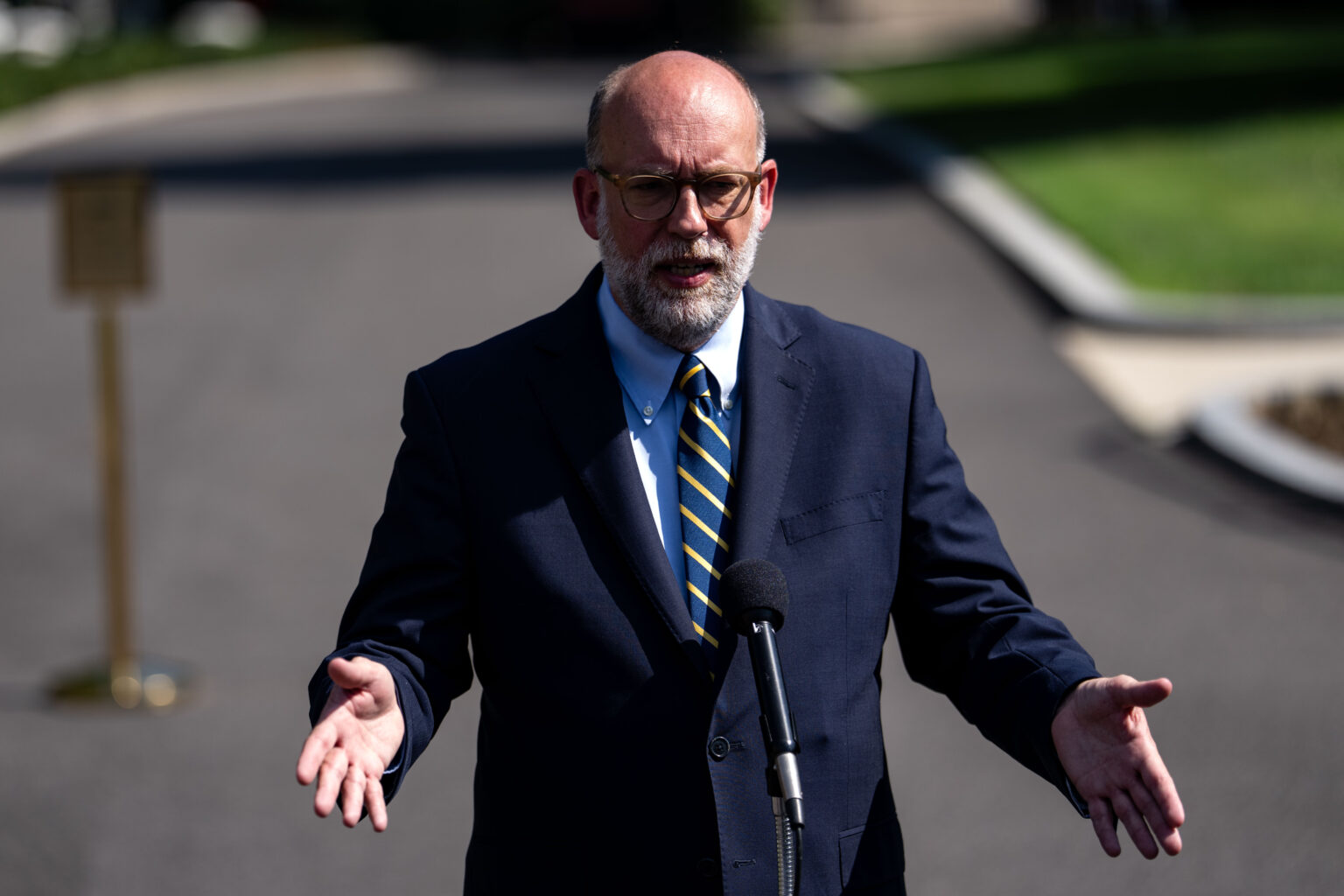White House’s Unconventional Approach to Budget Disclosure Sparks Debate
Administration Justifies Partial Budget Release Amid Legal and Procedural Concerns
In a surprising move that challenges longstanding bipartisan norms, Russell Vought, Director of the White House Office of Management and Budget (OMB), announced on Thursday that the federal government would not be releasing a comprehensive budget proposal for the current fiscal year. This decision, which some analysts argue contravenes established legal requirements, marks a significant departure from tradition.
During a breakfast session with journalists hosted by the Christian Science Monitor, Vought explained that the administration deliberately chose to withhold a full budget document. The rationale, he said, was to prevent confusion during the ongoing debate over the recently enacted Republican tax legislation, which was passed earlier this month. Under the provisions of the Budget and Accounting Act of 1974, the president is mandated to submit a complete budget proposal to Congress by the first Monday in February. However, it is customary for new presidents to delay this submission during their initial year in office. The current administration contends that the partial budget they released suffices as an effective stand-in, representing what they consider an official budget.
The Significance of a Full Budget and the Implications of Its Absence
Traditionally, a presidential budget includes detailed economic forecasts-such as projections of inflation, deficits, national debt, and gross domestic product-that serve as critical benchmarks for fiscal policy. These figures often influence legislative negotiations and public discourse. The Trump administration, however, has yet to publish these comprehensive economic estimates. Instead, the White House’s budget office provided Congress with a voluminous appendix-approximately 1,200 pages-that outlines priorities for discretionary spending, the portion of the federal budget subject to annual appropriations.
Vought emphasized that a full budget would eventually be released, stating, “We’re certainly going to publish a complete budget at some point.” Nonetheless, he argued that releasing it now would cause unnecessary confusion, with the public and lawmakers unsure whether to focus on the reconciliation process-used by congressional Republicans to pass tax cuts without Democratic filibuster resistance-or the broader budget plan. “Reconciliation is a tool for legislative action, and releasing a full budget now would create chaos,” he explained.
Forecasting Economic Trends: When Will the Full Picture Emerge?
Vought also indicated that the White House plans to issue midyear economic forecasts later this summer, though he did not specify an exact timeline. These forecasts are expected to include key indicators such as inflation rates, deficit estimates, and GDP growth projections, which are vital for informed policymaking.
He reassured that Congress possesses sufficient information to proceed with appropriations, asserting, “They have everything they need to move forward, and we will provide additional data on our terms-deliberately and intentionally.” This approach underscores the administration’s intent to control the flow of fiscal information and influence the legislative process.
Historical Context and Expert Reactions
Legal and budgetary experts have expressed concern over the White House’s prolonged refusal to release a full budget. Charles Kieffer, a veteran of multiple administrations and a former Democratic staffer on the Senate Appropriations Committee, remarked, “This is highly unusual. In my 46 years observing federal budgeting, I cannot recall a period when a White House has withheld a complete budget for this long, especially during the first year of a new administration.”
The absence of comprehensive economic data complicates efforts to accurately forecast the federal deficit, which is highly sensitive to variables such as tariff revenues-fluctuating daily-and changes to mandatory spending programs like Medicaid. These uncertainties make precise budget planning challenging, raising questions about the administration’s transparency and fiscal strategy.
Controversy Over Federal Spending Cuts and the Role of DOGE
During the same event, Vought addressed claims that the Department of Government Efficiency (DOGE)-a government initiative led by billionaire Elon Musk until his departure in May-has identified substantial savings in federal spending. A website operated by DOGE claims that this year’s savings amount to approximately $190 billion.
While Vought cautioned against basing policy decisions solely on DOGE’s estimates, he acknowledged the importance of institutionalizing the identified cuts. Currently, the administration is working to secure congressional approval for roughly $9 billion in reductions, primarily targeting foreign aid and public broadcasting. The Senate approved this measure early Thursday, but it still requires House approval. Given the likelihood that many similar cuts will not gain legislative support, there is speculation that the administration might pursue unilateral reductions-potentially totaling hundreds of billions of dollars-without congressional approval.
Vought has previously challenged legal restrictions that prevent the president from unilaterally canceling spending, arguing that such laws are unconstitutional. He advocates for greater executive authority to manage federal funds independently, emphasizing that when DOGE reports canceled contracts or grants, the associated funds should be considered permanently eliminated, regardless of legislative action.
Looking Ahead: The Future of Federal Budgeting and Fiscal Policy
This unconventional approach to federal budgeting raises important questions about transparency, legal compliance, and fiscal responsibility. As the White House continues to navigate these issues, the coming months will reveal whether the administration’s strategy will withstand legal scrutiny and how it will impact the nation’s fiscal stability.
In an era marked by economic volatility and shifting political landscapes, the decision to withhold a full budget underscores the complexities of modern governance and the evolving role of executive authority in fiscal policymaking.

